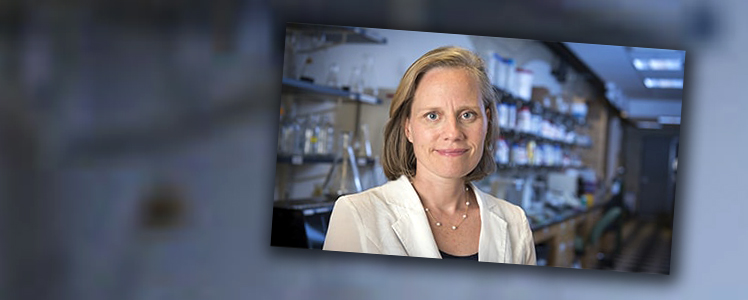Thursday, September 24, 2015

Alison Barth Named Interim Director of BrainHub
Robert Kass Named Interim CMU Co-Director of the Center for the Neural Basis of Cognition
Carnegie Mellon University has named Alison Barth interim director of BrainHub. Barth, professor of biological sciences, is a leader in the field of synaptic plasticity who has helped to shape the global field of neuroscience through innovations created in her lab. As interim director of BrainHub, she will lead the university’s interdisciplinary neuroscience research initiative and help direct the search for a permanent director.
Carnegie Mellon Provost Farnam Jahanian announced Barth’s appointment as part of an update about progress in brain science at the university. In addition, Jahanian announced that Professor of Statistics and Machine Learning, Robert E. Kass was named the interim co-director of the Center for the Neural Basis of Cognition. Kass is one of the world’s foremost experts on using statistics in neuroscience, a key component of CMU’s approach to brain research.
“Both Alison Barth and Rob Kass are highly respected members of the global neuroscience community,” said Jahanian. “As a noted leader, researcher and inventor, Alison has the expertise we need to continue BrainHub’s forward momentum and guide the search for a new director.”
Launched in August 2014, BrainHub brings together CMU’s strengths in biology, computer science, psychology, statistics and engineering to study how the structure and activity of the brain give rise to complex behaviors, and to develop new technologies that advance and build upon this research.
"Carnegie Mellon is perfectly suited to develop 21st-century solutions to brain science research. BrainHub brings together scientists and engineers across a diverse range of academic areas, and great things will come from the synergies that will develop. This is a really exciting time for neuroscience research here," said Barth, who also is a member of the joint CMU/University of Pittsburgh Center for the Neural Basis of Cognition.
Barth was one of the first neurobiologists to join CMU’s biological sciences faculty. Since joining the Mellon College of Science, she has cultivated a world-recognized research program that has helped to place CMU on the map for neuroscience research.
In her lab, she studies the organization and plasticity of neocortical circuits, investigating how different types of synapses are altered by behavioral experience. To study how learning changes the brain, she uses some of the most advanced techniques in neuroscience to conduct her research, including multiplexed neurophysiological recordings in genetically altered mice, as well as advanced microscopy and machine learning tools for analysis.
In addition to basic research, Barth has a strong focus on tool-development, including engineering new reagents to address outstanding questions in brain science. She invented the fosGFP mouse, the first transgenic tool that allowed researchers to locate and characterize neurons activated by experience in a living animal. This technology has been licensed to pharmaceutical companies and distributed to hundreds of researchers worldwide. Barth holds the patent for the fosGFP transgenic mouse and is the inventor of multiple other neuroscience-related methods and treatments.
“Alison Barth is a prime example of what Carnegie Mellon is trying to accomplish through BrainHub. She seeks to gain a fundamental understanding of how the brain learns in response to experience and she also develops new technologies and techniques crucial to advancing the field,” said Fred Gilman, dean of the Mellon College of Science.
Barth is the recipient of numerous awards. In addition to having been a Sloan Foundation Fellow, she has been recognized with the Research Award for Innovation in Neuroscience from the Society for Neuroscience, the McKnight Endowment Fund for Neuroscience’s Memory and Cognitive Disorders Award, and the Alexander von Humboldt Foundation’s Friedrich Wilhelm Bessel Research Award.
Barth also is active in the global neuroscience community, serving on the Society for Neuroscience Program Committee and is a frequent participant in NIH- and NSF review panels.
As the birthplace of artificial intelligence and cognitive psychology, Carnegie Mellon has been a leader in the study of brain and behavior for more than 50 years. The university has created some of the first cognitive tutors, helped to develop the Jeopardy-winning Watson, founded a groundbreaking doctoral program in neural computation, and completed cutting-edge work in understanding the genetics of autism.
By: Jocelyn Duffy, jhduffy@andrew.cmu.edu, 412-268-9982